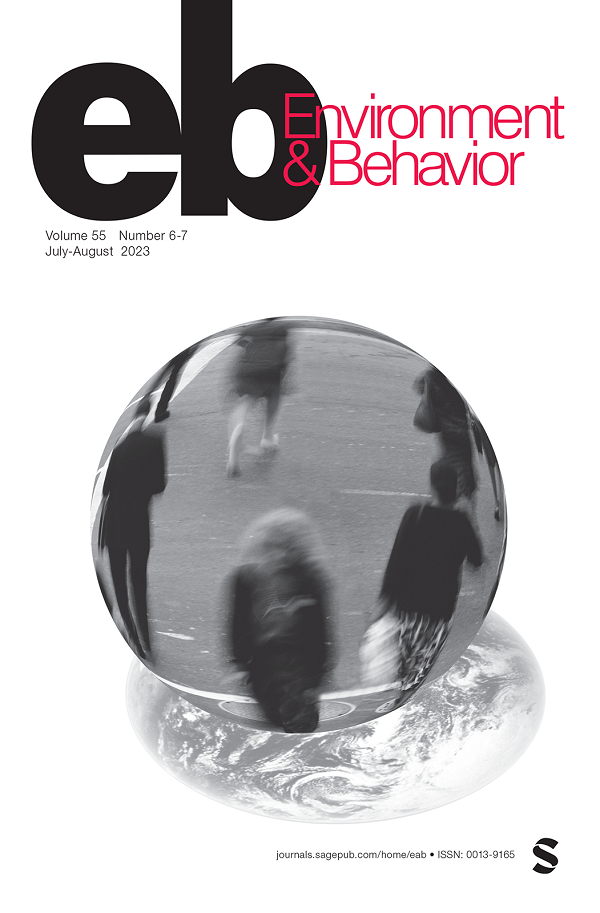沧海一粟?通过信息提供和反馈促进节水行为及其溢出效应
IF 4.6
2区 心理学
Q1 ENVIRONMENTAL STUDIES
引用次数: 0
摘要
促进环境变化对应对气候变化至关重要。如果非目标行为也发生改变,行为改变干预的影响会增加。本研究探讨了节水行为干预后的行为溢出效应,并考察了其是否受相关身份和信念变化的调节。我们采用了一种有说服力的干预方法,鼓励150名参与者在14天内减少每天洗澡的次数,以节约用水。干预包括提供信息,引出减少淋浴时间的承诺,以及(对一半的样本)进度反馈。我们发现,参与者减少了淋浴时间(38%),并打算更多地参与节水和环保活动,但我们没有发现行为溢出的证据(即,非目标意图的改变不受目标行为的改变的调节)。接受反馈对行为改变没有额外的影响。我们将讨论这些发现对溢出效应的理论和实践意义。本文章由计算机程序翻译,如有差异,请以英文原文为准。
A Drop in the Ocean? Fostering Water-Saving Behavior and Spillover Through Information Provision and Feedback
Pro-environmental change is essential to address climate change. Impact from behavior change interventions increases if non-target behaviors also change. Here, we explore such behavioral spillover effects following a water conservation behavioral intervention and examine whether they are mediated by changes in relevant identities and beliefs. We used a persuasive intervention to encourage 150 participants to reduce daily shower-times over 14 days to conserve water. The intervention comprised information-provision, eliciting a shower time reduction commitment, and (for half the sample) progress feedback. We found that participants reduced shower time (by 38%) and intended to engage more in water-saving and pro-environmental activities, but we found no evidence of behavioral spillover (i.e., non-targeted intention change was not mediated by change in the target behavior). There was no additional effect on behavior change of receiving feedback. We discuss the implications of these findings for spillover in theory and practice.
求助全文
通过发布文献求助,成功后即可免费获取论文全文。
去求助
来源期刊

Environment and Behavior
Multiple-
CiteScore
13.30
自引率
1.80%
发文量
13
期刊介绍:
Environment & Behavior is an interdisciplinary journal designed to report rigorous experimental and theoretical work focusing on the influence of the physical environment on human behavior at the individual, group, and institutional levels.
 求助内容:
求助内容: 应助结果提醒方式:
应助结果提醒方式:


